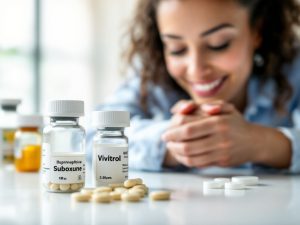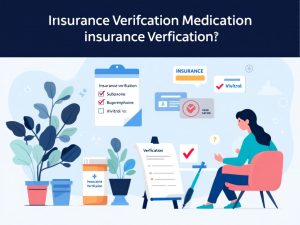Recognizing the value of nutrition in addiction recovery
When you or a loved one are on the path to overcoming substance use challenges, it is easy to focus primarily on detox, therapy, and medication. Yet one essential element often goes under the radar: nutrition support for addiction. If you have struggled with substance use, you might already know that maintaining a balanced diet becomes extremely difficult during active addiction. Shifts in appetite, gastrointestinal issues, and simple neglect of healthy eating can all contribute to a spiral of malnutrition and poor health.
Researchers have found that people grappling with substance use often experience malnutrition, which can make it harder to differentiate cravings for drugs from hunger signals (Nutritional Approaches to the Treatment and Recovery of SUDs). This phenomenon is sometimes referred to as “addiction transfer,” and it can derail your efforts to achieve lasting sobriety if it remains unaddressed. Taking a fresh look at your diet can dramatically improve your energy levels, emotional balance, and overall vitality, ultimately supporting your journey toward long-term recovery.
Beyond providing essential vitamins and minerals, good nutrition cultivates a sense of routine and normalcy, especially if your life has been disrupted by substance use. By embracing regular mealtimes and balanced food choices, you can restore a feeling of structure that bolsters other aspects of your recovery. At Epic Health Partners, you can receive comprehensive outpatient behavioral health, psychiatric, and substance-use care, including vital nutritional guidance that helps you reclaim control over your life.
Common nutritional challenges during addiction
Substance use disorders can manifest in widely varied ways. Different substances carry a unique set of nutritional and health complications that might shape your path to recovery. Understanding these challenges will help you create a framework for healthier eating habits as you work toward sobriety.
Opioid addiction
Regular opioid use can lead to appetite suppression, constipation, and disruptions in normal hunger cues. You may feel less inclined to eat, which raises the risk of micronutrient deficiencies like low levels of vitamins D and C, as well as minerals such as iron and potassium (Gateway Foundation). Over time, appetite suppression can become a cycle that worsens feelings of fatigue and exacerbates mental health concerns. If you or a loved one are seeking guidance on managing opioid-related concerns, you might consider a specialized program like opioid addiction treatment.
Alcohol misuse
Alcohol abuse is one of the major causes of nutritional deficiencies in the United States, often depleting B vitamins (B1, B6, and folic acid) and essential minerals such as magnesium, calcium, and zinc (MedlinePlus). If you have ever struggled with alcohol use, you might have encountered issues with anemia, neurological complications, or even conditions like Wernicke-Korsakoff Syndrome, which stems from severe thiamine deficiency. These deficiencies can hinder your body’s ability to heal during recovery, making the adoption of a nourishing diet that much more important. If this challenge resonates with you, you may benefit from alcohol use disorder treatment to complement your nutritional efforts.
Stimulant abuse
Stimulants like cocaine, methamphetamine, and certain prescription pills can decrease your appetite for extended periods. You might lose track of meals altogether or forget to replenish fluids, leading to dehydration and electrolyte imbalances. When you eventually stop using stimulants, appetite can skyrocket, causing you to overeat and strain your already exhausted digestive system. Over time, this correlation between stimulant use and disordered eating can complicate your recovery and derail your health goals (Gateway Foundation).
Marijuana overuse
Marijuana can notably increase appetite, often leading to cravings for foods high in saturated fat, sugar, and salt (MedlinePlus). This pattern can drive weight gain and put you at risk for heart disease, diabetes, and other health problems that compound addiction-related hardships. If you find yourself struggling with marijuana misuse, you can explore marijuana use disorder treatment to address both your substance use and any related nutritional challenges.
How nutrition supports your healing
Recovering from addiction involves restoring multiple facets of your life, from emotional well-being to physical stamina. Adequate nutrition serves as a powerful cornerstone, providing essential building blocks for healing your body, stabilizing your mood, and bolstering your resilience in the face of cravings.
Balancing physical and emotional health
If you have felt trapped by cravings or unsteady moods, you know how easy it is to overlook the importance of nutrition. However, nutritional deficiencies can magnify mood swings and anxiety by depriving your brain of vital neurotransmitter precursors such as amino acids, B vitamins, and omega-3 fatty acids (Harmony Ridge Recovery). Addressing these deficiencies can improve emotional stability, strengthen cognitive function, and build a stronger platform for lasting sobriety.
Practically, this might include incorporating high-protein meals to support muscle repair, as well as fresh fruits and vegetables to replenish antioxidant levels. In doing so, you will enable your body to recover gradually while also tending to your psychological state. Over time, the positive effects on your energy and mood can reduce the likelihood of relapse.
Restoring neuroplasticity
Substance use can alter the brain’s natural chemical pathways, disrupt hormones, and damage neural connections. Many of these disruptions directly relate to neurotransmitters that depend on consistent dietary intake of key nutrients. By embracing nutrition support for addiction, you help your body replenish normal amounts of serotonin, dopamine, and other neurotransmitters. According to research, a balanced intake of vitamins and minerals encourages neuroplasticity, which improves your ability to adapt to life without substances (Gateway Foundation).
Good nutrition also provides the energy you need to stay motivated during challenging parts of the recovery process, including therapy sessions or group support meetings. With better neuroplasticity, you tend to learn and integrate coping strategies more seamlessly, enhancing the quality of your overall treatment.
Promoting better mental health
If you suffer from depression or anxiety, these conditions might worsen or even drive your addiction. Nutrients like vitamin D, antioxidants, and B vitamins can mitigate some of the mental health impacts of substance use, supporting you in a more holistic way (Northpoint Nebraska). Reintroducing these nutrients can help alleviate persistent fatigue, stabilize your mood, and reduce anxiety, making it easier for you to engage with treatments such as cbt for addiction or dbt for addiction.
In addition, stable blood sugar levels, supplied by regular balanced meals, can diminish irritability and the risk of cravings triggered by sudden energy crashes. Overcoming addiction often requires approaching it from multiple angles, and improving your diet is a critical step in building a sturdy foundation for improved mental health.
Epic Health Partners’ approach to nutritional support
At Epic Health Partners, you can expect more than a surface-level approach to addiction services. Instead, you will find a holistic blend of evidence-based therapies, nutritional guidance, and supportive learning to facilitate your recovery and long-term well-being.
Holistic and evidence-based strategies
Part of what makes our approach unique is our commitment to integrating nutrition counseling with traditional addiction treatments. You might, for instance, pair individual therapy sessions with regular meetings where you learn how to plan and prepare healthy meals. We draw on cutting-edge research pointing to the efficacy of pairing medical and psychological interventions with consistent nutrition support for addiction recovery (NCBI).
We also believe in fostering a supportive environment that addresses the whole person, whether you need heroin addiction treatment, fentanyl addiction treatment, or help managing co-occurring mental health concerns. Addiction rarely stems from a single cause, so ensuring you have comprehensive resources, including good nutrition, is vital to your ongoing progress.
Customized treatment plans
At Epic Health Partners, we recognize that substance use does not unfold the same way for everyone. Maybe you struggled with stimulants and found that your appetite drastically declined, leading to significant weight loss, or perhaps you faced an alcohol use disorder that left you severely depleted of key vitamins. Our team works closely with you to develop customized nutritional strategies that address your unique situation, health status, and goals.
For some individuals, that might mean attending specialized nutrition counseling sessions focused on rebuilding healthy eating habits. For others, it may involve exploring the emotional triggers that lead to harmful food choices or substituting balanced diets for the sugar binges that sometimes follow the cessation of certain drugs. These nuanced treatment plans help you build flexibility and resilience, two qualities that are especially important if you want to prevent relapse in the long run.
When to seek help
Struggling with malnutrition, fluctuating appetite, and persistent cravings could be indicators that you need more structured assistance within your recovery journey. If you notice persistent low energy, unexplained weight changes, or frequent mood swings, it may be time to seek additional support. Perhaps more importantly, if you feel that every small stressor sends you reaching for unhealthy food or the urge to use, seeking professional care can be a life-changing step.
Key signs you may need further support
- Regular binge-eating or skipping meals
- Goals for sobriety that feel overshadowed by constant cravings
- Ongoing digestive issues, constipation, or nutrient deficiencies
- Difficulty maintaining stable moods or energy levels
- Lack of knowledge about what a balanced diet entails
If you identify with some of these concerns, consider incorporating a more structured solution, which might feature not only nutrition support but also professional behavioral health services. At Epic Health Partners, you can connect with counselors who understand the complex relationships between your emotional state, addictive behaviors, and dietary habits.
Why choose Epic Health Partners for outpatient care
Choosing the right outpatient program to fit your addiction recovery needs can significantly broaden your chances of success. With Epic Health Partners, you or a loved one can benefit from an integrated approach to substance use and mental health care. Here, you will find a spectrum of services designed to offer you the empathy, knowledge, and personalized treatment plans you deserve.
Comprehensive services under one roof
One main advantage of Epic Health Partners involves streamlined access to multiple levels of care. For instance, if you need a specialized service such as trauma informed addiction therapy or group therapy addiction, you can easily incorporate these into an existing treatment plan without juggling multiple providers. This cohesive structure allows for seamless communication between mental health professionals, dietitians, and substance use specialists, ensuring that those involved in your care operate with a shared understanding of your needs.
We also offer case management and ongoing coaching, so you receive real-time support while navigating your nutrition goals. This might include reminders to stay hydrated, tips on what to eat post-workout, or simple check-ins that inspire you to keep moving forward. Our broad range of services means you can develop a comprehensive foundation for well-being, both physically and mentally.
Experienced, compassionate team
At Epic Health Partners, we understand that tackling addiction can be daunting. You will find a welcoming space where trained professionals offer you empathy and practical strategies. From medical personnel to mental health workers and nutritionists, each team member brings a passion for helping you realize your full potential in recovery. Many of those you encounter care deeply about evidence-based practices, meaning you can feel confident that the recommendations you receive—whether nutritional or therapeutic—are supported by credible research.
Our staff has worked extensively with populations facing diverse challenges, from opioid misuse to dual-diagnosis clients who navigate mental health issues alongside addiction. This breadth of expertise allows you to receive nuanced and up-to-date care. Whether you require targeted therapy such as family therapy addiction or you’re looking into specialized options like holistic recovery therapy, our team can help you choose the best combination of services for your situation.
Long-term support for sustained recovery
Recovery is an ongoing process that doesn’t end the moment you complete a rehabilitation program. Once you begin nutritional counseling and other outpatient services, you have the option to remain connected with your support system for as long as necessary. This extended assistance helps you maintain consistency in your dietary habits as your body and mind adapt to sobriety.
Even after you achieve stable results, additional touches, such as structured recovery program participation or recovery coaching, can ensure that you feel confident managing life’s obstacles without resorting to old patterns. The core mission at Epic Health Partners is not merely to help you stop using substances, but to equip you with the life skills, nutritional insights, and emotional resilience you need for the future.
FAQs about nutrition and addiction recovery
Below are five often-searched questions that might arise when you consider the power of nutrition support for addiction recovery.
How does nutrition impact cravings during recovery?
A balanced diet helps stabilize blood sugar levels and support neurotransmitter production, both of which reduce the intensity of cravings. When you have consistent energy throughout the day, you are less likely to feel stressed or depleted, making it easier to avoid substance use.Can nutritional deficiencies worsen withdrawal symptoms?
Yes. If your body is already deprived of essential vitamins and minerals, withdrawal can feel more severe. For instance, a deficiency in B vitamins can contribute to fatigue and irritability, intensifying uncomfortable withdrawal effects.What are some quick tips to improve nutrition immediately?
Start by focusing on three nutritious meals per day. Incorporate lean proteins like poultry or fish, complex carbohydrates like whole grains, and plenty of vegetables or fruits. Also make sure to drink enough water to stay hydrated, especially if you are coping with stimulant or opioid withdrawal that can dehydrate your body.Do I need professional help to change my diet?
While certain improvements can be made on your own, professional guidance can accelerate and strengthen your results. Dietitians and healthcare providers, like the ones you find at Epic Health Partners, can offer expert insights and tailor a plan to your unique medical history.How long does it take to see results from good nutrition in recovery?
Every individual responds to dietary changes at a different pace. Some people notice immediate benefits in mood and energy, while others might need a few weeks of consistent eating for noticeable improvements. Over time, better nutrition can make a significant impact on overall well-being and recovery stability.
Embrace a healthier future
If you or a loved one have embarked on a journey toward sobriety, it’s important to appreciate how much a balanced diet can accelerate your progress. Nutrition support for addiction goes far beyond surface-level meal plans. Rather, it is about restoring your physical health, supporting emotional resilience, and fortifying your mind to adapt to new coping strategies.
At Epic Health Partners, you have access to an expert team ready to guide you through personalized outpatient behavioral health, psychiatric, and substance-use care. By merging evidence-based therapies, compassionate counseling, and robust nutritional support, you will find yourself well-equipped to traverse the complexities of recovery with renewed stamina and confidence.
Your path to wellness can involve more than just overcoming the immediate challenges of substance use. It can also include finding passion in new, healthier routines—learning how to nourish both your body and your mind. If you are ready to explore comprehensive, holistic care that integrates nutrition into an individualized treatment plan, consider reaching out to Epic Health Partners today. We are here to help you chart a steadier, brighter future rooted in genuine healing.







